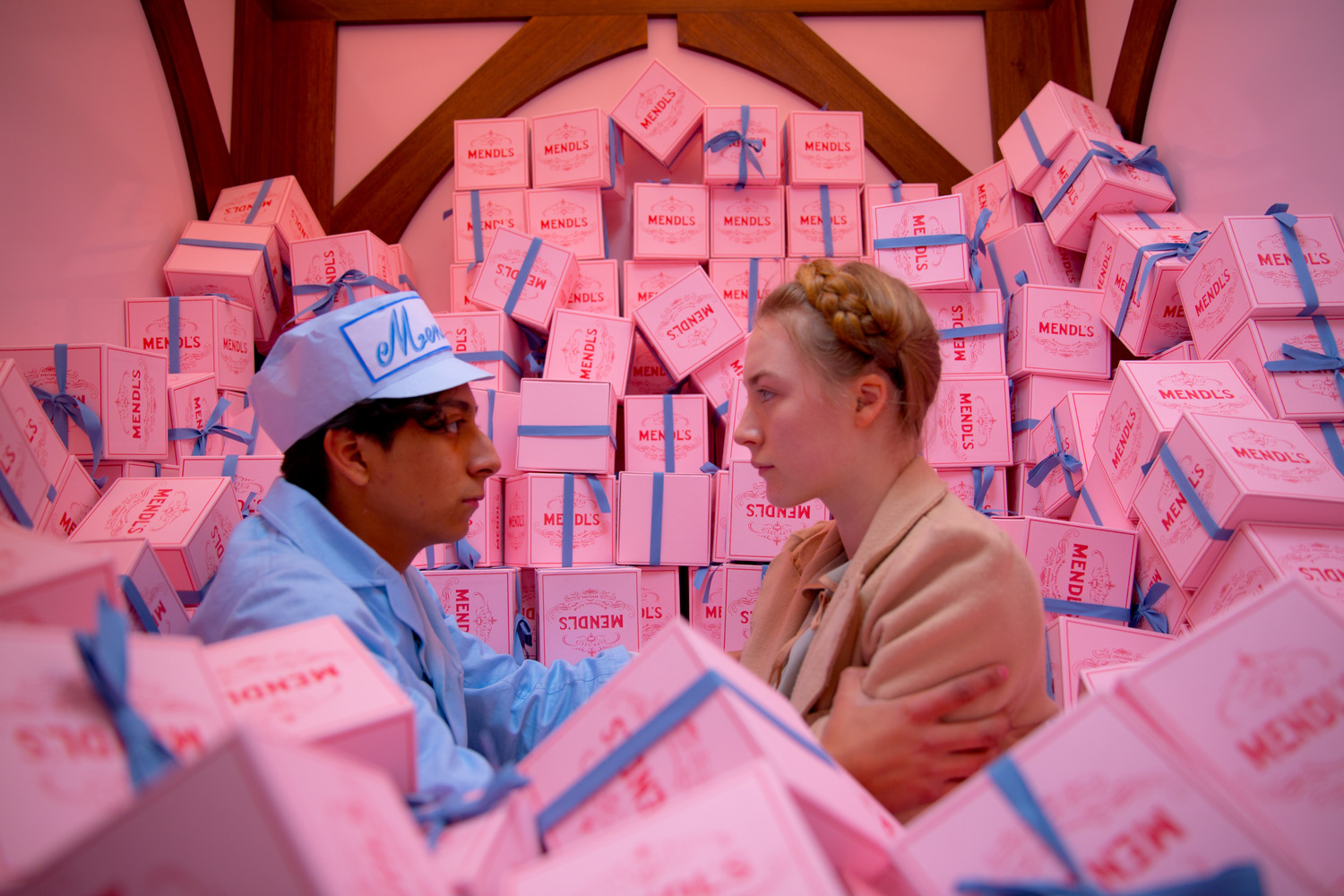REVIEW: 'The Grand Budapest Hotel'.
If you’ve been seeing the term “candy-coloured” pop up in your social feeds recently, there’s a pretty good reason. Wes Anderson’s latest film, The Grand Budapest Hotel, continues to roll out across North America, and the largely positive reviews are flowing in. The critics seem to be sharing a common language to describe the film, with references to the film’s intricate construction and brightly coloured cinematography.
It’s an efficient way to describe the movie’s visuals, by comparing them to the elegant pastry confections that are so beloved by the Ralph Fiennes’ character, M. Gustave. It’s also an excellent metaphor for how the film contributes to cinema in general, since Anderson’s style is something we don’t want too much of – as enjoyable as his movies are, we would get sick if we had too many.
But after finally getting a chance to see the film this past Saturday, I prefer to think of The Grand Budapest Hotel as a cinematic Rube Goldberg machine. It’s a delightfully complex brain-teaser, with so many moving parts and clever mechanisms that watching it becomes a giddy race to absorb it all. And like the best Goldberg machines (where the goal is to design a ridiculously complicated system to complete a simple task), Anderson’s new film may not deliver a major wallop at the end, but the real joy comes from watching it operate.
The layers of the script are piled on at the start, as an older, unnamed author (Tom Wilkinson) reflects on his stay at the titular hotel twenty years previously, when he was told the story of how the hotel’s owner, Mr. Zero Moustafa (F. Murray Abraham) came to possess it. From there, we dive into the early 1930s, when Zero (played as a teenager by Tony Revolori) was a junior lobby boy under the tutelage of M. Gustave (Fiennes), the well-respected, comically detail-oriented concierge.
Not long after Zero begins working at the hotel, he and M. Gustave are drawn into a plot involving a priceless painting, the murder of a wealthy woman, and the vengeful family who thinks Gustave is the culprit. The twists and turns of the story may not be on the level of an Agatha Christie or P.D. James novel, but Anderson’s presentation more than makes up for it.
Tonally, the movie continues the noticeable shift from the director’s earlier features, which had much heavier doses of melancholy and deadpan humour – elements that left some viewers feeling a bit alienated. That tone reached a peak with movies like The Life Aquatic with Steve Zissou and The Darjeeling Limited, but Anderson has been slowly mixing lighter material into his work since then, achieving a much more balanced mix of emotions in 2012’s Moonrise Kingdom.
Now, with The Grand Budapest Hotel, the comedy reaches the zany levels found in films from the period Anderson focuses on, the 1930s. Scenes reminiscent of the Marx Brothers and Buster Keaton are complemented by the smooth camera moves, dollhouse-style sets and stop-motion animation that Anderson is known for.
The filmmakers have also outdone themselves with the cast, which is so stuffed with standout performers that you can run out of breath trying to name them all. Needless to say, repeat collaborators like Owen Wilson, Bill Murray and Jason Schwartzman are all in attendance, and the film still manages to give screen time to the 15-plus other big names on the bill (even if it’s only for a few seconds).
Some still believe that Anderson’s work is a case of style over substance, or feel that the director is too self-indulgent with the tools and the people he uses. But The Grand Budapest Hotel only confirms what we noticed in Moonrise Kingdom: Anderson is perfectly capable of adapting his whimsical visuals to more involving stories.
Once you’ve sampled all the external pleasures of this new film, you’ll find that there is a heart inside this clockwork contraption. It beats with rhythms of mentor-student relationships, commitment to one’s vocation and nostalgia for an era of service that’s long since disappeared. In that respect, Anderson’s gizmo isn’t that complicated at all.
The Grand Budapest Hotel gets four stars out of four.
What did you think of Wes Anderson’s latest work? Are you just as charmed as you’ve always been, or have his films become predictable for you? Join the discussion in the comments section, and if you liked this review, share it with your friends and followers!
-




